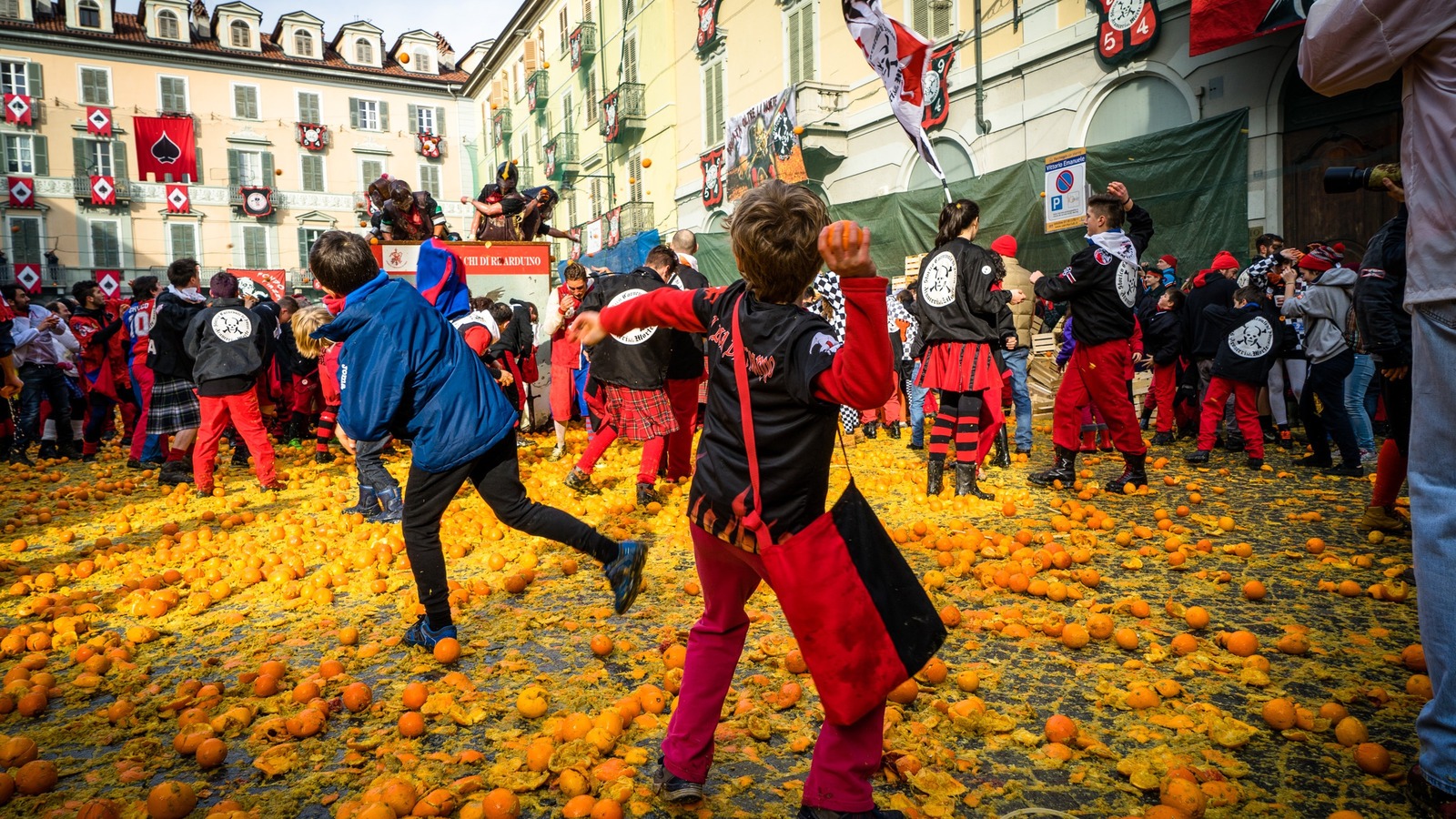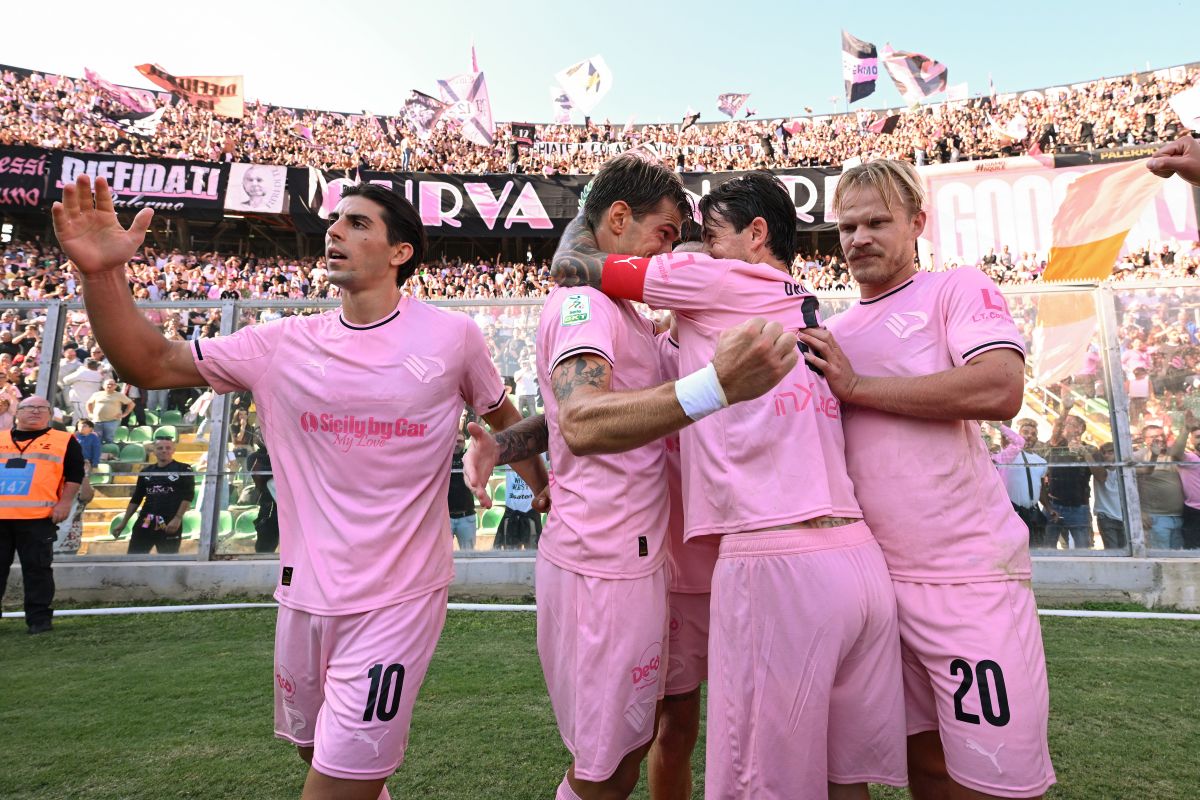
Northern Ireland Euro 2028 Saga a Stark Reminder for Italy As Euro 2032 Deadline Looms
By Emmet Gates
It was an end most saw coming, and the final nail was delivered late last Friday. Northern Ireland is almost certainly to be dropped from co-hosting duties for Euro 2028 as political wrangling, in addition to ballooning estimated stadium costs, meant their nominated arena — Casement Park — is set to be scrapped by the UK government.
The UK and Ireland are set to host UEFA’s next competition, with each country getting a selection of games. The island of Ireland was due to receive multiple games in Belfast and Dublin, but now it’s likely that Dublin will be the only capital to see games in just under four year’s time.
The choice of venue for Belfast, Casement Park, caused serious political debate, with the stadium being located in West Belfast — a nationalist enclave of the city. Unionists weren’t happy with the idea of Northern Ireland potentially playing games in a Gaelic Football stadium. Windsor Park, where Northern Ireland have always played their home games, isn’t fit for purpose and cannot be expanded to meet UEFA requirements.
Moreover, the estimated cost of renovating Casement Park, which has laid derelict for over a decade, has mushroomed to around £400m. This was a figure the UK government wasn’t willing to invest in without a guarantee the project would be ready for Euro 2028, and therefore the plug was pulled.
What’s all this got to do with Italy, you may ask. The FIGC (the Italian FA) and the Italian government should take this as a warning as to what could await the country in several years should they not get things in order ahead of Euro 2032. A warning of sorts was already handed out over the past several days by UEFA director Michele Uva.
Uva, who is a former FIGC executive and helped Italy’s failed bid to host Euro 2016, spoke to Italian daily Tuttosport last week and reiterated the urgency that’s needed from Italy to prepare for the tournament.
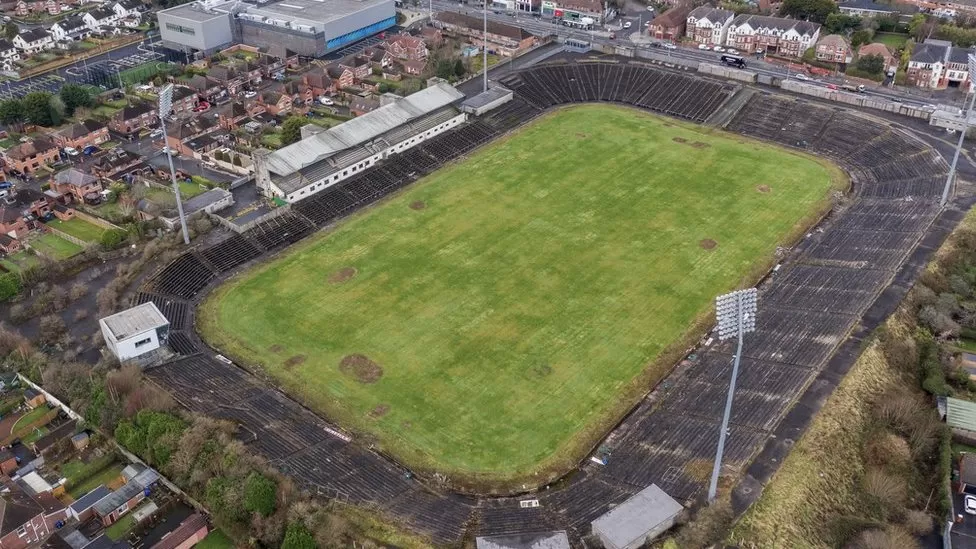
“Italy needs five stadiums up to code for Euro 2032, with projects that are already approved and financed,” he said. “At the moment, only one is ready, the Juventus Stadium in Turin. The Stadio Olimpico in Rome needs a few changes, while the situation at San Siro is more complicated.
“A year has passed since the hosting rights were assigned and there has not been much progress. It’s not just about the five needed for the tournament, as Italy needs to invest in the smaller clubs too. For example, in Turkey they have built 13 new stadiums over the last few years, not just those that will host the Euros.”
Italy’s problem with building new stadiums has become infamous over the past two decades, with umpteen projects unveiled over the years, only to die in political black holes. It’s now been over five years since AC and Inter Milan announced their intention to build a new stadium beside the San Siro, and to knock down one of the game’s most cherished cathedrals. The uproar in Italy was immense, and since the plan was announced, the stadium has now passed into national monument status, and thus cannot be demolished completely, only renovated substantially.
“In England they knocked down Wembley, in Brazil they rebuild the Maracanà, these were temples of football,” Uva added of the topic.
“I realise people are fond of the stadiums, but we mustn’t think they are eternal. San Siro is a beautiful monument, but the two Milan clubs ought to each have their own modern home ready to bring in fresh revenue.”
After much protracted wrangling with the Milan city council, which has seen the clubs determined to build their own arenas in different suburbs of Milan, to then entertaining an idea by the mayor of Milan — Giuseppe Sala — to renovate San Siro, the clubs are now back at their original idea: to build a new, shared arena next to San Siro. Five years have passed and not a brick laid on the ground.
Projects from Roma, Fiorentina, Cagliari, Bologna, Parma, Empoli and Lazio are all in the embryonic stages. Rome, Turin and Milan have been appointed as three of the five cities needed to host Euro 2032, but Italy needs to nominate another two host cities.
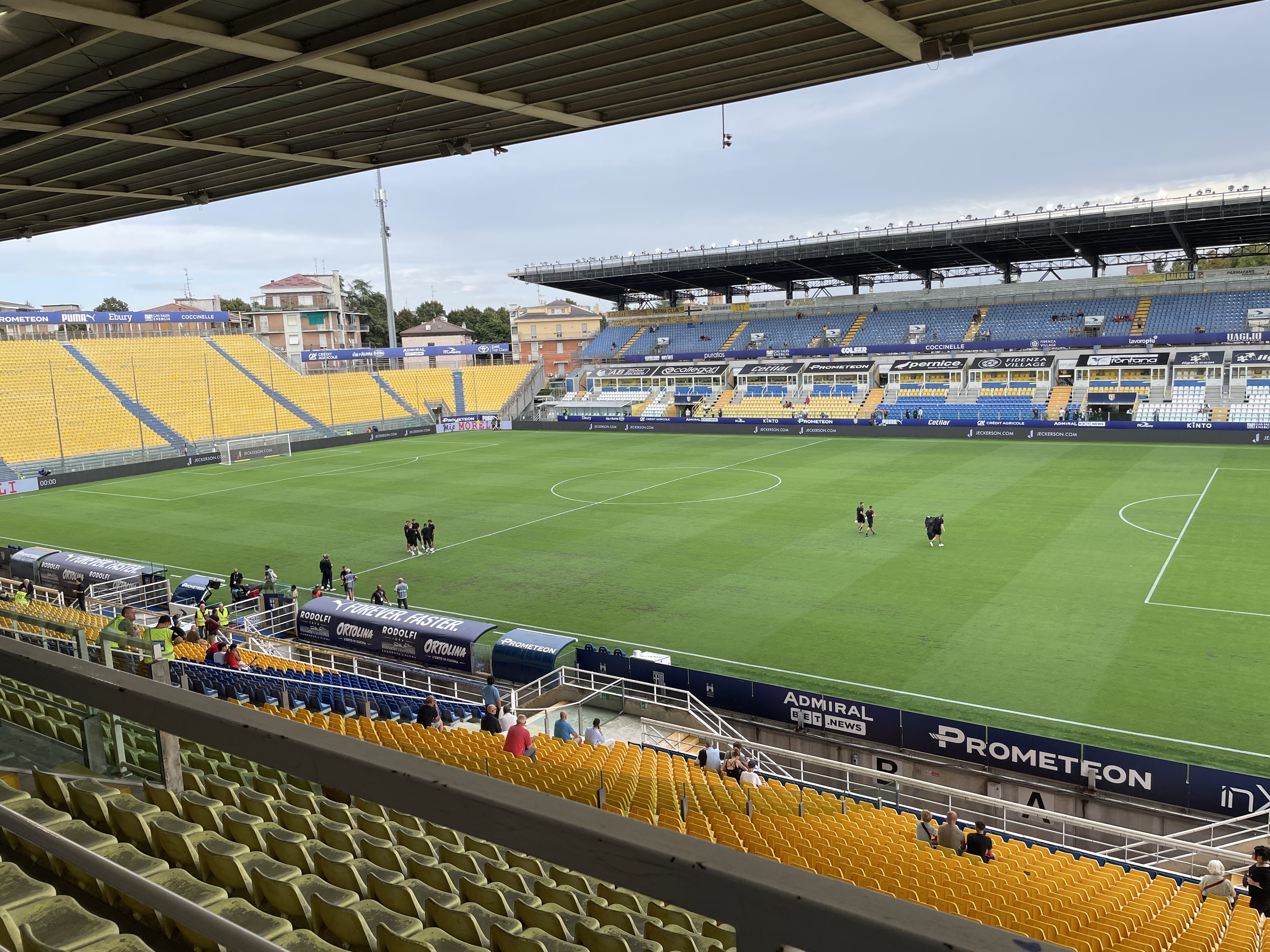
Florence is perhaps one of the most plausible destinations, with the Stadio Artemio Franchi actually undergoing renovations. Yet, this is Italy and there’s always controversy. The Franchi, one of the oldest arenas in Italy at a spritely 93 years young, was given public funds from Italy as part of the EU’s post-pandemic recovery fund. This amounted to some €190bn (£160bn) for the nation.
Dario Nardella, mayor of Florence, had initially managed to secure €95m (£75m) for the Franchi, but finally someone at the EU realised that Italy was going to use public money and divert it to building two new stadiums (Venezia the other) and so forced Italy to take the hard line with Florence, telling Rome to take out the two stadiums from the proposal, or they’d hold back more of Italy’s allocated funds.
This has left the Franchi with around €55m (£46m) in missing funds, and Fiorentina president Rocco Commisso has vowed not to put a single penny of his own money into the project. The bulldozers have moved in and Fiorentina will play this season with a diminished capacity, but who supplies the remaining capital remains to be seen.
It’s been almost a year since Italy was handed the right to host Euro 2032 with Turkey, and little-to-no progress has been made on stadiums. Roma’s project at Pietralata is slowly making progress, and there is hope the Friedkin Family can get the project over the line, with the American owners looking to simply build a stadium and nothing more, as opposed to James Pallotta’s plans, which also included hotels and commercial buildings.
Cagliari’s project also looks promising, with funds coming from a mix of the government, the club and private investors. A similar scenario is being played out in Bologna, with the local government also willing to partially fund a revamped Stadio Dall’Ara along with club patron Joey Saputo. However news has been quiet on the Bologna front in recent months, with its current status unknown.
While there are unparalleled levels of feet-dragging from Italy’s politicians, there is a sense that the country will just about make it over the line and co-host the tournament. This was the case with Italia ’90, the last competition Italy held, with many stadiums still being worked on in the weeks leading up to the tournament. Yet Italia ’90 went massively over budget, to the extent Italy didn’t finish paying back the accumulated debt until 2017.
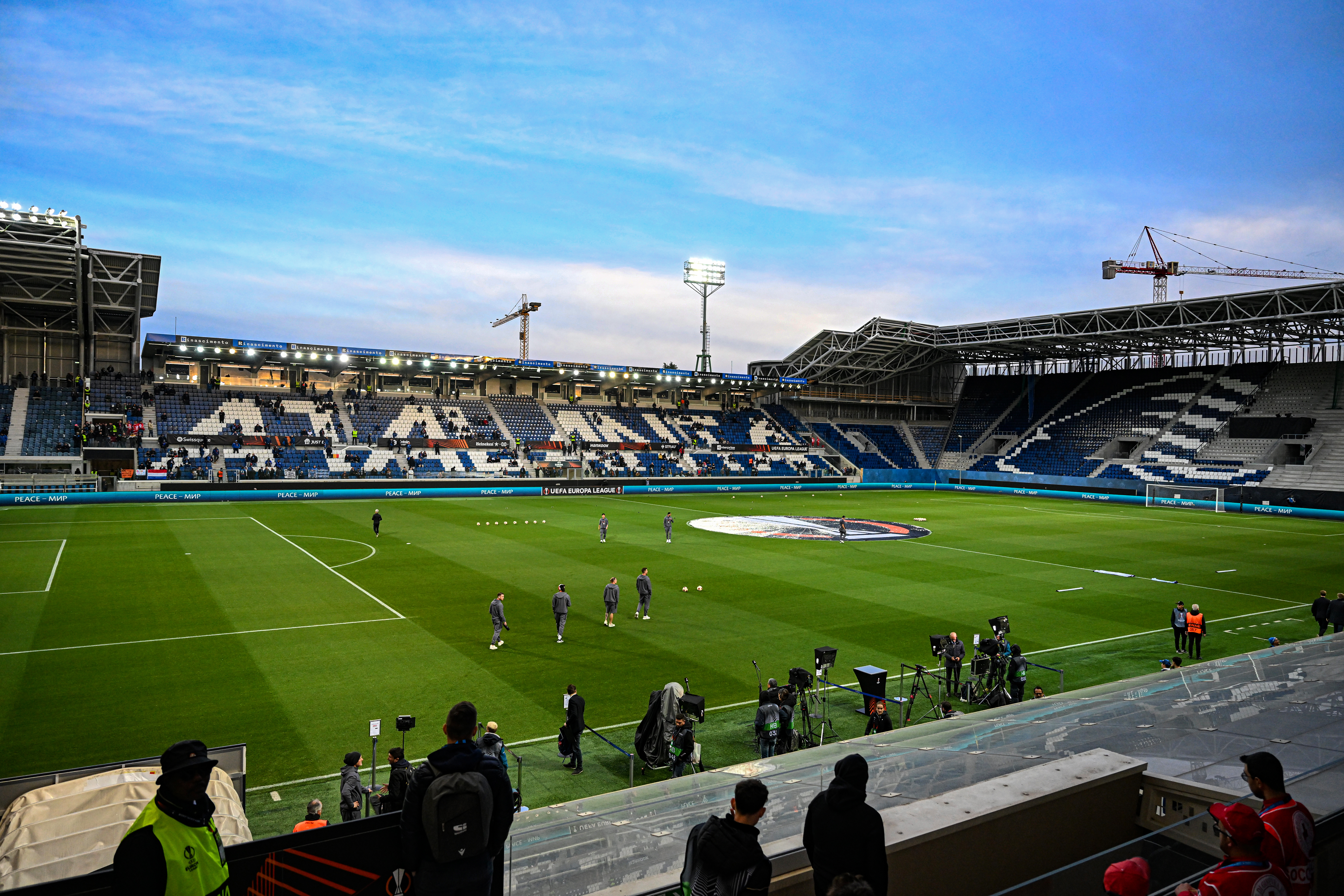
Atalanta’s Gewiss Stadium has been successfully renovated over the past five years, with the final section completed over the past six months, and is now one of the best arenas in the country. Unfortunately for Bergamo, the 23,500-seater stadium doesn’t meet Uefa requirements, and so Italy can’t nominate it as a potential host city for 2032.
Unlike the era of Italia ’90, times are different and Italy has to meet Uefa’s deadline of October 2026 to nominate their five cities. Just over two years out from that deadline and Uva’s words should be ringing in the ears of those at the FIGC and the Italian state.
Losing out on hosting Euro 2032 would be an embarrassment of epic proportions. Moreover, it would likely rule out the country ever hoping to hold another competition for decades. Bad enough that a country of Italy’s size and football culture had to scale down ambition to host the competition solely due to realising it could never build or renovate the 10 stadiums required, but also losing out on co-hosting duty would be disastrous and cost tens of millions in lost revenue.
What happened to Northern Ireland last week should be a stark reminder to Italy: enough of the talk about stadiums and more action.
Speaking of stadiums, browse through our Stadium Guides section.
Related Articles
Related Articles
Football rivalries, world-class sport, surreal carnivals, and a tradition you won’t find anywhere else. Five events to catch in February.
In the latest edition of My Town, My Team, Napoli fan Alex told us why everybody should visit Naples at least once.
Sampdoria against Palermo at the Stadio Luigi Ferraris is just one of the standout matches to be shown live on Destination Calcio TV.


